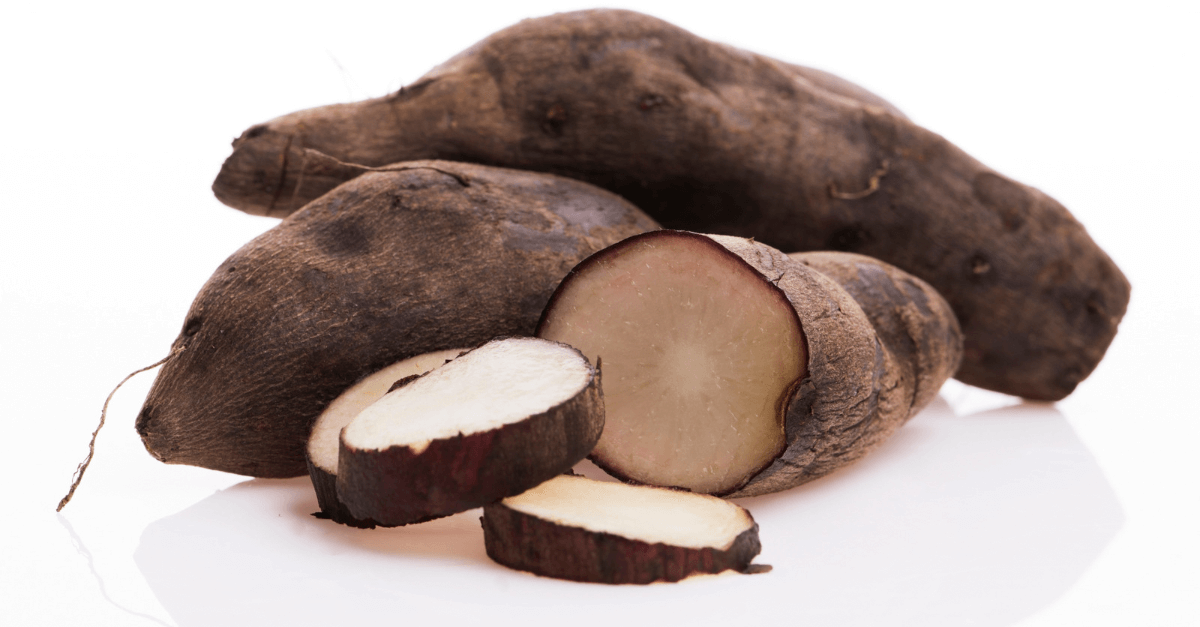Yacon Root – Prebiotic & natural food sweetener
Yacon (Smallanthus sonchifolius) is a perennial plant of the family Asteraceae. It is naturally sweet, related to the sunflower and Jerusalem artichokes, and resembles sweet potatoes. Its texture and taste is similar to that of an apple. Native to the Andean regions of South America, it is an abundant source of fructooligosaccharides (FOS). High in fiber, its popularity is expanding in the natural foods industry because of its use as an appetite suppressant, natural sweetener, and prebiotic.
Key Benefits
- Promotes healthy weight
- Supports digestion
- Supports healthy cholesterol
- Supports healthy gut bacteria
- Supports mineral absorption
- Provides strong antioxidant effect
History of Usage
Smallanthus sonchifolius has been cultivated in South America for centuries. This root crop is a traditional food for many cultures and has only seen expansion into other regions in recent decades. The consumption of yacon nearly ceased after the Spanish invasion; however, it has recently regained popularity as a diet sweetener in Peru and Japan.
Yacon was first cultivated in New Zealand in the late 1970s, and it spread to Japan, the Czech Republic, South Korea, and Brazil in the 1980s and 1990s. In 1984, a seeding company from New Zealand introduced yacon to Japan. Today, yacon root is beginning to appear in health food markets in the United States and elsewhere.
Biochemistry
Yacon root contains fructans, including fructooligosaccharides and inulin, which are prebiotics. Fructans aren’t digested in the small intestine, but travel to the large intestine, where they can improve gut microflora by acting as a food source for good bacteria. It also contains a compound called yaconine that promotes blood flow.
The carbohydrate content in yacon is about 70% to 80% fructooligosaccharides and inulin. These components have a low glycemic index and don’t cause spikes in blood sugar. Yacon root is shown to be hypoglycemic and may decrease insulin resistance and serum insulin.
Yacon is very high in fiber, which slows digestion and produces satiety.
Yacon contains a polyphenol called chlorogenic acid, which has a strong antioxidant effect. Yacón tubers are rich in potassium, calcium, and magnesium.
Recent Trends
Yacon flour is used as a natural fiber supplement and has proved to be an effective adjuvant to be used in nutritional strategies to control excess body weight.
Scientific studies have revealed that the root has low nutritive value but is very high in fiber, which makes it useful in the food industry as one of the plant-based sweeteners. It is eaten raw, cooked, made into juice, used in salads, extracted for syrup, and even fried to make yacon chips.
Yacon root extract is available in syrups, powders, and capsules.
Precautions
- May cause flatulence, nausea, digestive discomfort, and diarrhea.
- Individuals with IBS or intolerance to FODMAP fibers should not ingest yacon root.
References
- Caetano BF, de Moura NA, Almeida AP, Dias MC, Sivieri K, Barbisan LF. Yacon (Smallanthus sonchifolius) as a Food Supplement: Health-Promoting Benefits of Fructooligosaccharides. Nutrients. 2016 Jul 21;8(7):436. doi: 10.3390/nu8070436. PMID: 27455312; PMCID: PMC4963912.
- Genta S, Cabrera W, Habib N, Pons J, Carillo IM, Grau A, Sánchez S. Yacon syrup: beneficial effects on obesity and insulin resistance in humans. Clin Nutr. 2009 Apr;28(2):182-7. doi: 10.1016/j.clnu.2009.01.013. Epub 2009 Feb 28. PMID: 19254816.
- Adriano LS, Dionísio AP, Abreu FAP, Carioca AAF, Zocolo GJ, Wurlitzer NJ, Pinto CO, de Oliveira AC, Sampaio HAC. Yacon syrup reduces postprandial glycemic response to breakfast: A randomized, crossover, double-blind clinical trial. Food Res Int. 2019 Dec;126:108682. doi: 10.1016/j.foodres.2019.108682. Epub 2019 Sep 15. PMID: 31732062.
- Cao Y, Ma ZF, Zhang H, Jin Y, Zhang Y, Hayford F. Phytochemical Properties and Nutrigenomic Implications of Yacon as a Potential Source of Prebiotic: Current Evidence and Future Directions. Foods. 2018 Apr 12;7(4):59. doi: 10.3390/foods7040059. PMID: 29649123; PMCID: PMC5920424.
- Gomes da Silva MF, Dionísio AP, Ferreira Carioca AA, Silveira Adriano L, Pinto CO, Pinto de Abreu FA, Wurlitzer NJ, Araújo IM, Dos Santos Garruti D, Ferreira Pontes D. Yacon syrup: Food applications and impact on satiety in healthy volunteers. Food Res Int. 2017 Oct;100(Pt 1):460-467. doi: 10.1016/j.foodres.2017.07.035. Epub 2017 Jul 18. PMID: 28873709.
- Pinto de Abreu FA, Wurlitzer NJ, Araújo IM, Dos Santos Garruti D, Ferreira Pontes D. Yacon syrup: Food applications and impact on satiety in healthy volunteers. Food Res Int. 2017 Oct;100(Pt 1):460-467. doi: 10.1016/j.foodres.2017.07.035. Epub 2017 Jul 18. PMID: 28873709.
- Machado AM, da Silva NBM, Chaves JBP, Alfenas RCG. Consumption of yacon flour improves body composition and intestinal function in overweight adults: A randomized, double-blind, placebo-controlled clinical trial. Clin Nutr ESPEN. 2019 Feb;29:22-29. doi: 10.1016/j.clnesp.2018.12.082. Epub 2018 Dec 29. PMID: 30661690.



